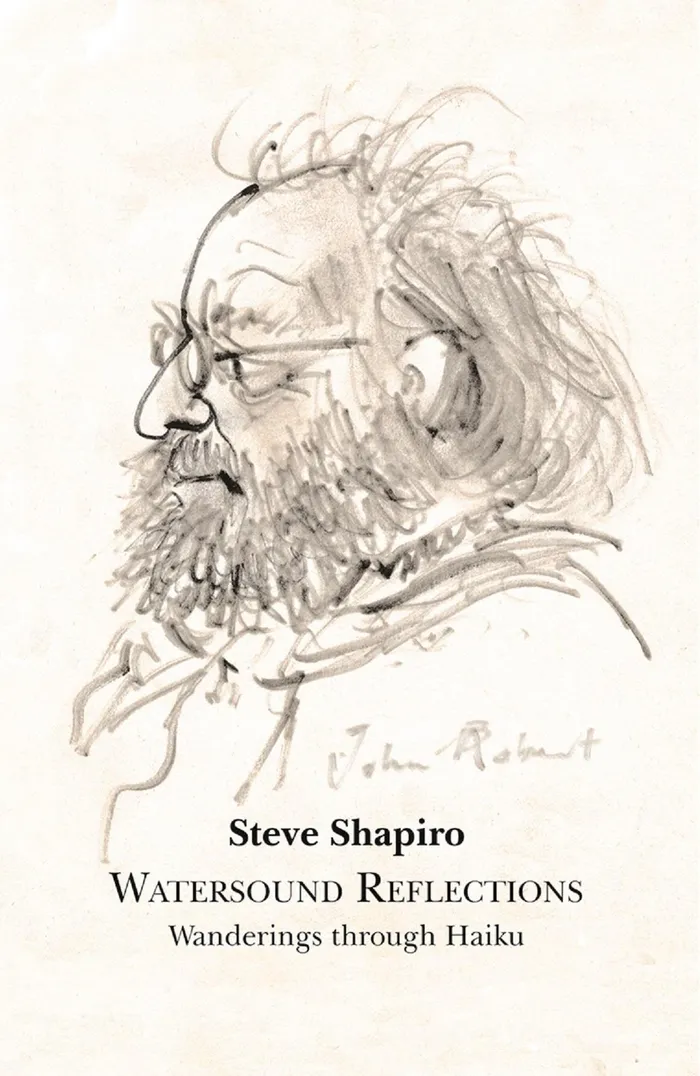Book review: Watersound Reflections: Wanderings through haiku

book cover Steve Shapiro of Hout Bay has collected together a poetry anthology of haiku.
Image: supplied
Watersound Reflections: Wanderings through haiku
Steve Shapiro
Olive Press
Review: Karen Watkins
This collection of haiku is something to keep by your bedside and dip into early morning or late at night, in fact at any time.
If you, like me, isn’t sure what Haiku is, it’s described as a tight type of short poem. It can be traced back to the influence of traditional Chinese poetry. Western haiku are three phrases composed of 17 phonetic units in three lines of five, seven, and five syllables. These include a kireji, or "cutting word", and a kigo, or seasonal reference.
Shapiro’s haiku paints vivid snapshots of life and is a meditation on quiet moments. The poetic themes range from haunting to humorous, from humble to deeply inspiring, evoking a range of emotions, capturing the cyclical beauty of life’s rhythms.
There are so many to love from the trivial, such as the sound of burnt toast and the warmth of potato soup: "Celebrate tonight, potato soup, burnt toast, and a full heart." To the enduring love for his late wife, Kay: "Well, I’m still here, with the blossoms she loved. God how she loved them."
A favourite is: "reading’s a preface, for eyes-closed-sighing, and listening to birds." Or, "For morning haiku, you just need, a morning."
Shapiro originally came to haiku in the 1960s while living in Great Britain. He now lives in Hout Bay, where he founded Watersound Pottery. Since then, his poignant haiku are inspired by decades of practice and symbolises the essence of the genre as introduced by his hero, Reginald Blyth, who Shapiro describes as the unintentional "founder" of international haiku.
This elegant collection is a must-read for poetry enthusiasts and lovers of life’s small, quiet joys. They are a reminder that with wit and wisdom, we can find beauty in the everyday and honour the subtle art of presence. They also invite us to savour life’s fleeting moments, much like the reflections of Antony Osler, author and Zen teacher of the Karoo, who wrote the introduction.
The cover of this small book is illustrated by John Robért. The text is illustrated by Shapiro, and the book is dedicated to the late Gus Ferguson, who published some of the author's work In A Borrowed Tent awarded the Ingrid Jonker Poetry Prize 1996 and Of Little Consequence.